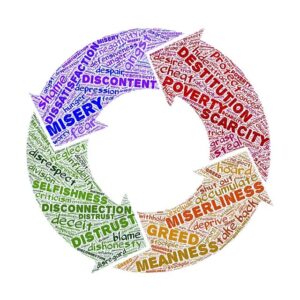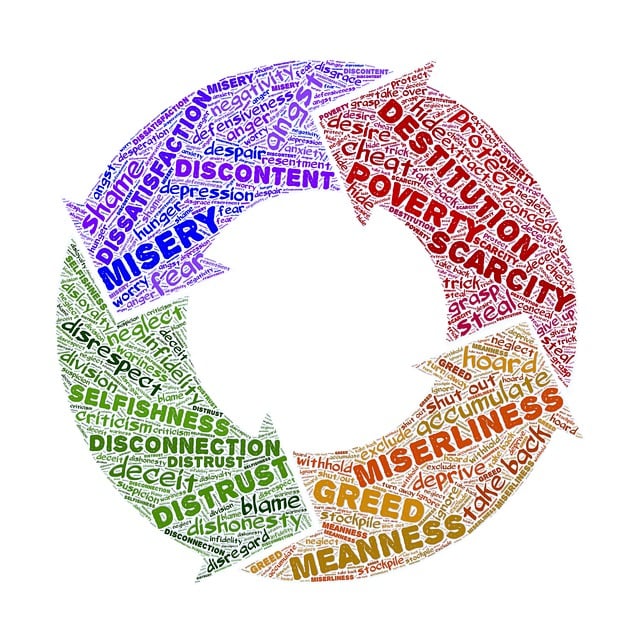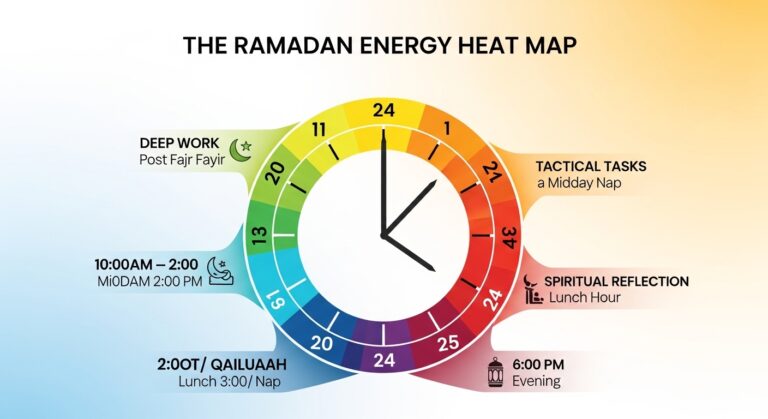Miserliness and Greed in 2025
Understanding the Destructive Trait That Harms Both the Individual and Society
Miserliness and greed represent powerful psychological tendencies that increasingly dominate human behavior in modern times. Contrary to common belief, these traits aren’t inherent instincts but rather learned behaviors that develop through environmental influences and personal experiences. Research indicates that greedy individuals often experience more negative symptoms, including depression, loss of interest, and negative affect, while also demonstrating lower psychological well-being and increased aggression[1]. This comprehensive exploration examines how miserliness develops, why it intensifies over time, its harmful effects on individuals and communities, and most importantly, effective strategies to overcome these tendencies. Through understanding the mechanisms behind greed and implementing practical solutions, we can cultivate more balanced, generous, and fulfilling lives while contributing to a more equitable society.

The literary definition of ‘miserliness’ is ‘an excessive desire to save money and the quality of being small or inadequate.’ A miser is a person who finds it extremely difficult to spend money, to the point that they willingly deny themselves basic comforts and necessities, to hoard money.
Allah has frowned on such behaviour as the person becomes enslaved by their greed for worldly possessions, and forgets to thank their Provider, or spend it in His way to achieve a reward in the form of Jannat.
Zakat has been established as the fourth pillar of Islam, by Allah. This is so that people can be tested of their faith in Him by physically parting with a fraction of their possessions, so that the poor can be clothed and fed. An Ahadith of the Prophet (p.b.u.h) narrates:
“Allah has enjoined upon rich Muslims a due to be taken from their properties corresponding to the needs of the poor among them. The poor will never suffer from starvation or lack of clothes unless the rich neglect their due. If they do, Allah will surely hold them accountable and punish them severely.” (related by At-Tabarani in Al-‘Aswat and as-Saghir).
The Development of Miserliness and Greed: How It’s Learned, Not Innate
Children are not born miserly or greedy; these tendencies develop through observation, experience, and reinforcement throughout their formative years. Early childhood experiences, particularly around resource allocation and security, play a crucial role in shaping attitudes toward possessions and sharing. When children grow up in environments characterized by scarcity or unpredictability, they may develop protective attitudes toward resources as a survival mechanism. Similarly, children who observe greed-motivated behaviors being rewarded might internalize these patterns as desirable and worth emulating. Consider the case of Alex, who grew up during an economic recession with parents constantly worried about finances. Despite achieving financial stability as an adult, Alex maintained extreme frugality bordering on miserliness, hoarding resources unnecessarily due to deeply ingrained fears of scarcity.
Moreover, certain parenting styles can inadvertently nurture greedy tendencies in children over time. Parents who use material possessions as rewards or withhold them as punishment may unintentionally teach children to overvalue material things. Additionally, our consumer-driven culture constantly bombards individuals with messages promoting acquisition and accumulation as paths to happiness and success. These external influences can gradually shape a person’s values and priorities, leading them to develop increasingly miserly or greedy tendencies. The good news, however, is that since greediness is learned rather than innate, it can be unlearned through conscious effort and practice. Understanding the developmental roots of one’s miserly tendencies represents the first step toward changing these patterns and cultivating more balanced attitudes toward resources and sharing.

Psychological Factors Behind Increasing Miserliness and Greed
Greediness tends to intensify over time due to several interconnected psychological mechanisms that create self-reinforcing cycles of acquisitive behavior. First, the hedonic adaptation phenomenon ensures that the satisfaction derived from acquisitions quickly fades, prompting individuals to seek more to recapture the initial pleasure. This creates an unsatisfying cycle where enough is never truly enough for the greedy individual. Furthermore, the scarcity mindset, characterized by the perception that resources are limited and must be accumulated, drives increasingly miserly behaviors even amid objectively sufficient resources. Maria, a successful business executive, despite earning millions annually, continued to cut corners on everyday expenses and hoarded office supplies due to her persistent fear of not having enough.
Additionally, social comparison plays a significant role in escalating greed, as individuals measure their success against others and continuously adjust their standards upward. When someone in your social circle acquires something new, it often triggers desire and dissatisfaction with what you already possess. Research has found correlations between greed and certain personality traits, including narcissism, Machiavellianism, and low empathy, suggesting these characteristics may predispose individuals to developing stronger miserly tendencies[1]. Moreover, insecurity and low self-esteem often manifest as compensation through material acquisition, with possessions becoming proxy measures of personal worth. The dopamine reward system reinforces acquisitive behaviors, creating addiction-like patterns where the anticipation of getting more provides temporary relief from anxiety or emptiness. Understanding these psychological mechanisms helps explain why greed tends to worsen rather than diminish over time without conscious intervention.
The Neurological Basis of Miserly and Greed Behavior

Recent neuroscientific research has illuminated the brain structures and functions associated with miserly tendencies, providing valuable insights into the biological underpinnings of greed. Studies using voxel-based morphometry analysis reveal that gray matter volumes in the prefrontal-parietal-occipital system correlate with negative psychopathology and happiness levels in greedy individuals[1]. Particularly significant is the relationship between certain brain regions and greedy behaviors, with the frontal pole and middle frontal cortex mediating relationships between greed personality traits and aggressive tendencies. The brain’s reward circuitry, particularly the ventral striatum and nucleus accumbens, shows heightened activation in response to acquisition opportunities in particularly miserly individuals.
Furthermore, neuroimaging studies have identified reduced activity in brain regions associated with empathy and social cognition among those scoring high on greed measures. This neurological pattern helps explain why extremely miserly people often struggle to recognize or prioritize others’ needs. Dr. James Harrison, a neuroscientist studying compulsive acquisition disorders, discovered striking similarities between brain activity patterns in pathologically greedy individuals and those with addiction disorders. “The same neural pathways activated by substance addiction can be triggered by acquisition and hoarding behaviors,” he explains. This finding suggests that for some individuals, greed operates through similar neurobiological mechanisms as addiction. Moreover, research indicates that early life stress can permanently alter brain development in ways that predispose individuals to miserly behaviors, creating heightened sensitivity to perceived resource scarcity. Understanding these neurological factors provides a more complete picture of why miserliness persists and how interventions might be designed to address its biological foundations.
Personal Consequences of Excessive Miserliness and Greed

Unchecked miserliness and greed inflict numerous harmful effects on the individual, degrading physical health, psychological well-being, and relationship quality over time. The constant pursuit of more creates chronic stress that manifests physically through elevated cortisol levels, disrupted sleep patterns, and increased cardiovascular strain. Studies show that greedy individuals often report higher levels of depression, anxiety, and negative affect, alongside significantly lower life satisfaction and psychological well-being [1]. The relentless desire for more prevents contentment with present circumstances, creating a perpetual state of dissatisfaction that undermines happiness. Consider Thomas, a wealthy investor who accumulated vast wealth through aggressive business tactics but suffered from chronic insomnia, hypertension, and two failed marriages due to his all-consuming focus on financial gain.
Additionally, miserly people frequently experience relationship difficulties as their prioritization of acquisition over connection alienates loved ones. Family members, friends, and colleagues may feel undervalued or exploited, leading to social isolation that further exacerbates psychological distress. Research demonstrates that greedy individuals score higher on aggression measures, suggesting that miserliness correlates with increased hostility and conflict in interpersonal interactions[1]. Furthermore, the cognitive narrowing effect of greed reduces capacity for creativity, curiosity, and appreciation of non-material experiences, significantly diminishing quality of life. The psychological burden of maintaining and protecting accumulated resources can generate paranoia and distrust, creating a stressful mental state characterized by constant vigilance. Understanding these personal consequences highlights how miserliness, though seemingly self-serving, ultimately harms the individual by compromising health, relationships, and overall life satisfaction.
Social Impact of Widespread Miserliness and Greed

When miserliness and greediness become prevalent within communities, they create far-reaching social consequences that undermine collective well-being and cohesion. Economic inequality represents one of the most visible impacts, as resources become increasingly concentrated among those most motivated by acquisition. This concentration creates systemic disadvantages for others, perpetuating cycles of poverty and limited opportunity[2]. The 2008 financial crisis dramatically illustrated how corporate greed across the banking sector generated devastating consequences for millions of ordinary citizens who lost homes, jobs, and retirement savings, while many responsible executives received bonuses. Additionally, greed-driven behaviors often manifest as exploitation, with businesses prioritizing profit over worker well-being through practices like inadequate wages, unsafe conditions, or denial of benefits.
Furthermore, widespread miserliness and greed erode social trust and cooperation, essential elements for functional communities. When individuals perceive others as primarily self-interested, they become less willing to engage in cooperative behaviors that benefit the collective. Social capital—the networks of relationships enabling society to function effectively—deteriorates in environments where miserly attitudes prevail. Research also shows correlations between societal levels of greed and increases in crime, corruption, and unethical behavior, as normative constraints weakened[2]. Moreover, political systems become vulnerable to manipulation by wealthy interests, undermining democratic principles and responsive governance. Social services and public infrastructure suffer when tax avoidance becomes normalized and support for community investment declines. Understanding these broader impacts highlights why addressing miserliness represents not just a personal development goal but an important social responsibility with implications for community wellbeing and social justice.
Environmental Damage Caused by Greedy Practices
Miserliness and greed extend their harmful influence beyond human societies to the natural environment, driving ecological degradation through exploitative resource extraction and consumption patterns. Excessive resource acquisition, a hallmark of greedy behavior, leads directly to deforestation, habitat destruction, and biodiversity loss as natural areas are converted to serve human desires rather than ecological needs[2]. The Amazon rainforest, for instance, continues losing approximately 10,000 acres daily primarily due to profit-motivated clearing for cattle ranching, timber harvesting, and soybean production. Furthermore, short-term profit prioritization over long-term sustainability results in pollution of air, water, and soil through industrial practices that externalize environmental costs while maximizing financial returns.
Additionally, consumerism driven by acquisitive tendencies generates enormous waste streams that overwhelm natural systems. The fast fashion industry exemplifies this problem, producing inexpensive, quickly disposable clothing that satisfies momentary desires while creating massive textile waste and pollution. Climate change acceleration represents perhaps the most significant environmental consequence of collective greed, as short-term economic interests repeatedly triumph over necessary carbon emission reductions. Corporate resistance to environmental regulations, often motivated by profit protection, further complicates efforts to address ecological challenges. These environmental consequences eventually create feedback loops affecting human populations through resource scarcity, natural disasters, and health impacts from pollution. Understanding the environmental dimension of greediness highlights the interconnectedness of personal values and planetary wellbeing, emphasizing how shifts away from miserly mindsets can contribute to ecological sustainability as well as personal and social benefits.
Breaking the Chains: Recognizing Your Greedy Tendencies
Self-awareness represents the crucial first step toward overcoming miserliness, as recognizing problematic patterns precedes meaningful change. Honest self-assessment requires examining your attitudes and behaviors around money, possessions, and sharing without defensiveness or justification. Notice whether you experience anxiety when sharing resources, difficulty discarding unused items, or preoccupation with accumulating more despite having sufficient resources. Pay attention to how you feel when others achieve success or acquire something desirable—does envy emerge, driving competitive acquisition? Michael, a marketing executive, realized his greed problem only after his six-year-old daughter asked why they needed a third vacation home when they rarely used the two they already owned.
Additionally, tracking your spending and acquisition patterns can reveal unconscious priorities that might surprise you. Reflect on your motivations for purchases and acquisitions—are they driven by genuine need or utility, or by temporary emotional satisfaction, status-seeking, or competition? Identifying the specific psychological needs you’re attempting to meet through acquisition helps redirect those needs toward healthier fulfillment methods. Understanding your triggers—such as stress, social comparison, or specific environments like shopping malls—enables the development of targeted intervention strategies. Furthermore, exploring childhood experiences and family attitudes around money and possessions often illuminates the origins of current miserly tendencies[3]. Consider how cultural messages about success and worth have shaped your values around acquisition and whether these align with your authentic priorities. The self-awareness process, while sometimes uncomfortable, creates the foundation for meaningful transformation away from miserliness toward

more balanced and fulfilling relationships with resources.
Mindfulness Strategies to Combat Miserliness and Greed
Mindfulness practices offer powerful tools for breaking miserly habits by developing present-moment awareness and intentional relationships with resources and desires. Regular meditation can help create space between acquisitive impulses and actions, allowing for more considered responses rather than automatic pursuits of more. When practicing mindfulness, you learn to observe desires arising without immediately acting on them, weakening their compulsive power. Additionally, implementing a mandatory waiting period before significant purchases interrupts the immediate gratification cycle that reinforces greed. Practicing gratitude meditation specifically focused on appreciating existing possessions counteracts the tendency to fixate on what’s lacking or desired but not yet acquired[3].
Furthermore, mindful consumption involves bringing full awareness to acquisition decisions, considering not just immediate desires but broader impacts on personal well-being, social relationships, and environmental sustainability. Sarah, a former shopaholic, developed a practice of asking herself three questions before any purchase: “Do I genuinely need this? Will it bring lasting value? Does this acquisition align with my deeper values?”
This simple mindfulness practice reduced her unnecessary spending by over 70% within six months. Values clarification exercises help identify core principles that can guide resource decisions more meaningfully than momentary desires. Additionally, body scan practices help recognize the physical manifestations of greed—tension, excitement, anxiety—creating awareness of how acquisitiveness affects your physical state. Incorporating mindful generosity practices, where giving is done with full attention to the experience rather than automatically, can gradually reshape neural pathways related to resource sharing. These mindfulness strategies, practiced consistently, gradually transform deeply ingrained miserly patterns by bringing conscious awareness to previously automatic behaviors.
Community-Based Approaches to Curbing Miserliness and Greed
Individual efforts to overcome miserliness gain substantial support through community-based approaches that provide accountability, alternative value systems, and collective reinforcement for more generous behaviors. Joining sharing economies or cooperative ownership models creates practical experiences in resource stewardship beyond individual possession, demonstrating fulfilling alternatives to private accumulation[3]. Community gardens, tool libraries, and skill exchanges all exemplify systems where access replaces ownership while building social connections. Additionally, participating in giving circles—groups that pool resources for collective philanthropy—transforms giving from an individual sacrifice to a shared social experience with greater impact. These collaborative approaches help reframe generosity as a source of connection and meaning rather than merely a financial loss.
Furthermore, community service exposes individuals to diverse perspectives and needs, broadening understanding beyond personal concerns and nurturing empathy that counteracts miserly tendencies. Mentorship programs specifically focused on financial literacy and values can help transmit healthier attitudes toward resources across generations. Local community activist Rosa Martinez established a neighborhood “Buy Nothing” group that grew to over 500 members exchanging goods freely rather than purchasing new items, simultaneously reducing waste, saving money, and building community bonds. Support groups specifically addressing compulsive acquisition or financial disorders provide a specialized understanding for those struggling with more severe manifestations of greediness. Faith communities and philosophical groups often emphasize values that counterbalance materialistic tendencies with spiritual or ethical priorities. Community-based initiatives create supportive environments where generosity becomes normalized rather than exceptional, making it easier to maintain changes in individual behavior through consistent social reinforcement[3].
Building Gratitude to Overcome Miserly Habits
Gratitude practice represents one of the most powerful antidotes to miserliness, as appreciation for what one already has naturally counteracts the persistent desire for more. Regular gratitude journaling, where you document specific things you’re thankful for each day, gradually shifts attention from what’s lacking to what’s present and abundant in your life[3]. Research demonstrates that consistent gratitude practice rewires neural pathways, making appreciation more automatic and dissatisfaction less dominant. Additionally, conducting a “possession inventory” with gratitude—mindfully reviewing items you already own while acknowledging their value—reduces the perceived need for new acquisitions. One former wealth manager described how his daily gratitude practice transformed his relationship with money: “After three months of daily gratitude journaling, I realized I had everything I truly needed for happiness, which freed me from the exhausting pursuit of ever more wealth.”
Furthermore, expressing gratitude directly to others creates positive social reinforcement that strengthens non-materialistic sources of satisfaction. Gratitude rituals before meals or at day’s end create regular reminders of sufficiency that counteract scarcity mindsets. Developing appreciation for non-material aspects of life—relationships, experiences, natural beauty, creative expression—broadens your sources of satisfaction beyond acquisition[3]. Additionally, gratitude-focused visualization exercises, imagining life without certain possessions or opportunities, heighten awareness of current abundance that miserly mindsets typically overlook. Comparative gratitude—recognizing your relative privilege compared to others with fewer resources—can motivate more generous resource sharing while reducing acquisitive desires. These gratitude practices, incorporated consistently into daily life, gradually transform the underlying dissatisfaction driving miserly behaviors into genuine appreciation for available resources, creating space for more generous and balanced relationships with possessions.
Seeking Professional Help for Compulsive Miserliness and Greed
When miserliness or acquisitive behaviors become compulsive or significantly disrupt well-being, professional intervention may be necessary to address underlying psychological issues. Cognitive-behavioral therapy (CBT) effectively targets the distorted thinking patterns maintaining miserly behaviors, helping identify and challenge beliefs like “I never have enough” or “My worth depends on what I own”[3]. Therapists specializing in compulsive acquisition disorders can develop personalized treatment plans addressing specific manifestations of problematic greed. Additionally, financial therapists combine psychological expertise with financial guidance to address the emotional aspects of money-related behaviors that standard financial advisors might not recognize. Dr. Jennifer Marcos, a psychologist specializing in wealth psychology, explains, “Many extremely wealthy clients come to me suffering despite their abundance because the psychological patterns driving their acquisition remain unaddressed.”
Furthermore, support groups modeled after addiction recovery programs provide community understanding for those struggling with shopping addiction or compulsive hoarding, conditions representing extreme manifestations of acquisitive tendencies. Family therapy may be appropriate when miserliness affects household dynamics or when intergenerational patterns need addressing. For severe cases involving obsessive-compulsive features, medication combined with therapy sometimes helps reduce the anxiety driving acquisitive behaviors. Additionally, specialized programs for specific manifestations like compulsive shopping or hoarding offer targeted interventions addressing these particular expressions of miserliness. Online therapy options have made professional help more accessible, allowing people to address these sensitive issues privately from home. Seeking professional help should carry no shame—it demonstrates commitment to personal growth and recognition that deeply ingrained patterns sometimes require expert guidance to overcome[3].
Cultivating Generosity: The Opposite of Miserliness
Developing generosity represents the most direct counteraction to miserliness, gradually replacing acquisitive tendencies with the satisfaction of sharing and giving. Starting with small, regular acts of giving helps build the “generosity muscle” through consistent practice rather than occasional grand gestures. Research shows that regular givers experience the “helper’s high”—positive emotional states triggered by generosity, which provides alternative satisfaction to acquisition-based pleasure. Anonymous giving particularly helps develop pure generosity, unmotivated by recognition or status. William, a reformed miser, began by anonymously paying for strangers’ coffee once weekly, gradually increasing his giving until he established a substantial scholarship fund, finding greater fulfillment in giving than he ever experienced through accumulation.
Additionally, exploring different forms of generosity—sharing time, skills, attention, and material resources—develops a more comprehensive generous orientation beyond financial giving. Incorporating giving into financial planning through scheduled donations transforms generosity from an afterthought to a core financial priority. Teaching generosity to children through modeling and explanation helps prevent miserly tendencies from developing in the next generation. Furthermore, celebrating others’ successes and good fortune cultivates “sympathetic joy” that counteracts envy-driven acquisition. Giving to causes aligned with personal values increases the meaningfulness and satisfaction derived from generosity. Additionally, participating in traditions emphasizing giving—whether cultural, religious, or family-based—embeds generosity in meaningful social contexts rather than treating it as isolated behavior. Generosity, practiced consistently and intentionally, gradually reprograms psychological and neurological patterns previously dominated by miserliness, creating sustainable pathways to greater personal satisfaction and social contribution.
A Balanced Path Forward
Miserliness and greediness, though powerful psychological tendencies, remain learned patterns that can be transformed through conscious effort and practice. Understanding the developmental origins, psychological mechanisms, and neurological underpinnings of these tendencies provides valuable insight into their persistence and intensity. The personal consequences—including compromised health, strained relationships, and diminished well-being—clearly demonstrate that miserliness ultimately harms the individual despite its apparent self-serving nature[1]. Similarly, the social and environmental impacts highlight greed as a significant contributor to broader problems, including inequality, exploitation, and ecological degradation[2]. This recognition underscores the importance of addressing these tendencies for both individual well-being and collective good.
Fortunately, multiple effective strategies exist for overcoming miserly habits, beginning with self-awareness and extending through mindfulness practices, gratitude cultivation, community engagement, and professional intervention when needed[3]. Developing generosity represents perhaps the most transformative approach, gradually replacing acquisition-focused satisfaction with the deeper fulfillment of meaningful sharing and giving. The journey from miserliness toward a balanced relationship with resources typically unfolds gradually through consistent practice rather than immediate transformation. Each small decision to prioritize “enough” over “more,” to share rather than accumulate, and to appreciate rather than desire contributes to lasting change. By understanding miserliness as a developed rather than innate tendency, we recognize our capacity to choose different relationships with resources—relationships characterized by sufficiency, appreciation, and generosity rather than scarcity, dissatisfaction, and accumulation. This balanced approach not only enhances individual well-being but also contributes to creating more equitable societies and sustainable relationships with our planet.
Miserliness, or excessive unwillingness to share or spend resources, has significant implications for mental health. While it may initially appear as a practical approach to managing resources, its psychological effects can be profoundly damaging.
Mental Health Consequences of Miserliness
1. Chronic Stress and Anxiety
Miserliness often stems from a fear of scarcity or loss, leading to chronic stress. The constant worry about preserving resources can result in heightened anxiety levels, which negatively impact mental health over time[3][6]. This stress can manifest physically, causing headaches, muscle tension, and digestive issues[6].
2. Depression and Emotional Isolation
Miserliness isolates individuals emotionally and socially. By prioritizing material possessions over relationships, misers may experience loneliness and depression. Depression symptoms—such as persistent sadness, fatigue, and loss of interest in enjoyable activities—are common among individuals who struggle with miserly tendencies[4][6].
3. Mood Instability
Miserliness can contribute to mood instability, which is associated with poor clinical outcomes like increased hospitalizations and suicidality in severe cases. This instability can lead to feelings of unhappiness and low self-esteem[5].
4. Pessimistic Thinking Patterns
Misers often develop pessimistic views about their future security, which further exacerbates feelings of hopelessness and worthlessness. This mindset can lead to difficulty concentrating and making decisions[1][4].
5. Reduced Life Satisfaction
Studies show that greed or miserliness correlates with lower life satisfaction. The inability to enjoy life due to an obsessive focus on accumulation diminishes overall happiness[2].
Anecdote: A Life Consumed by Fear
Consider John, a retired banker who lived frugally despite his substantial wealth. His miserliness led to strained family relationships and a lack of joy in life’s simple pleasures. Over time, John developed anxiety and depression due to his overwhelming fear of financial insecurity—a fear that was unfounded given his financial stability.
Conclusion
Miserliness impacts mental health by fostering stress, isolation, depression, and diminished well-being. Addressing these tendencies through self-awareness and professional help can significantly improve both mental health and overall quality of life.
Embracing the Beauty of the Present Moment in 2025 to Make life Beautiful!
Citations:
[1] https://www.healthline.com/health/mental-health/why-am-i-sad-for-no-reason
[2] https://pmc.ncbi.nlm.nih.gov/articles/PMC5511887/
[3] https://psychcentral.com/stress/how-stress-affects-mental-health
[5] https://pmc.ncbi.nlm.nih.gov/articles/PMC4452754/
[6] https://www.webmd.com/balance/stress-management/stress-and-how-it-affects-your-mental-health
[7] https://www.psychologicalscience.org/news/releases/misery-is-not-miserly-new-study-finds-why-even-momentary-sadness-increases-spending.html
[8] https://www.medicalnewstoday.com/articles/sad-for-no-
[9] https://medium.com/@adiszecevic/negative-impact-of-greed-a84eb1e8f2ea
[10] https://knowledge.insead.edu/leadership-organisations/escape-grip-greed-and-envy
[11] https://al-islam.org/youth-and-morals-sayyid-mujtaba-musavi-lari/miserliness
[12] https://risevest.com/blog/the-psychology-of-greed-and-money
[13] https://pmc.ncbi.nlm.nih.gov/articles/PMC6506209/
[14] https://independent.ng/greed-and-its-damaging-effects-on-societies/
[15] https://aleteia.org/cp1/2019/11/28/9-tips-to-help-you-overcome-greed
[16] https://www.islamichelp.org.uk/media-centre/news/miserliness-causes-misery
[17] https://cowrywise.com/blog/psychology-of-greed/
[18] https://www.apa.org/monitor/2009/01/consumerism
[19] https://knowledge.insead.edu/leadership-organisations/greed-destroying-your-soul
[20] https://pubmed.ncbi.nlm.nih.gov/38635309/
[21] https://public.wsu.edu/~taflinge/socgreed.html
[22] https://knowledge.insead.edu/leadership-organisations/seven-signs-greed-syndrome
[23] https://www.psypost.org/greedy-people-have-more-money-but-are-less-satisfied-with-their-lives-according-to-new-study/
[24] https://www.psypost.org/the-neuroscience-of-greed-a-glimpse-into-our-brains-reaction-to-fear-and-desire/
[25] https://www.thechurchnews.com/1998/10/17/23249984/how-to-avoid-greed/
[26] https://grandmufti.com.au/khutbah-miserliness-bukhl/
[27] https://www.investopedia.com/articles/01/030701.asp
[28] https://pmc.ncbi.nlm.nih.gov/articles/PMC6722203/
[29] https://www.ig.com/en/master-your-trading-mind/managing-emotions/how-to-control-greed-when-trading
[30] https://www.islamandihsan.com/man-is-greedy-and-stingy
[31] https://journals.sagepub.com/doi/full/10.1177/01461672221140355
[32] https://www.frontiersin.org/journals/psychology/articles/10.3389/fpsyg.2019.02021/full



